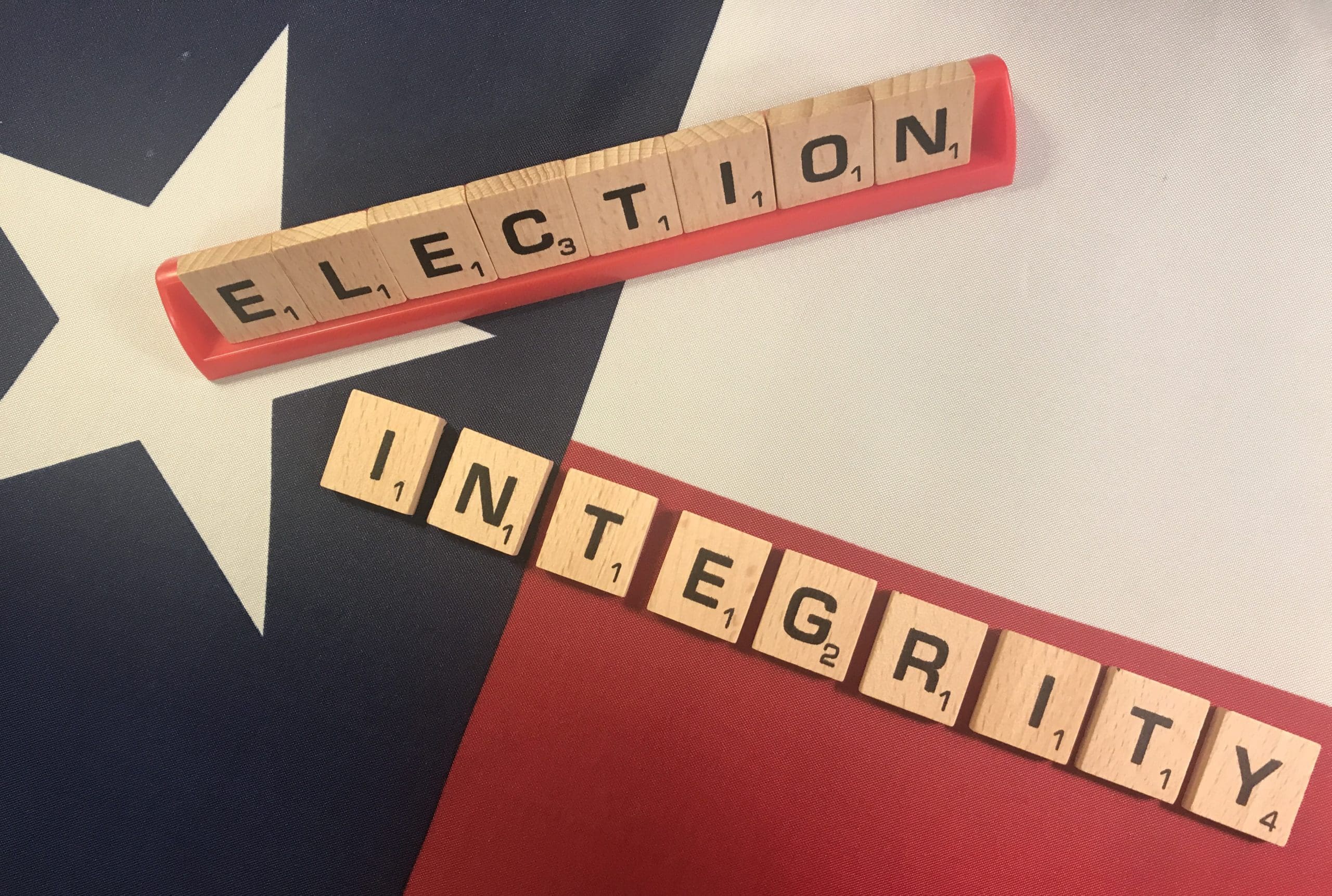Last week, the Texas secretary of state’s office announced it had launched a “full and comprehensive forensic audit” of the 2020 general election in four Texas counties: Dallas, Harris, Tarrant, and Collin.
On Tuesday, the secretary’s office provided new details about the ongoing election audit:
The purpose of this audit is to ensure all Texas voters can have confidence in the elections systems in our state, and to address any outstanding issues county election officials may face that undermines the integrity of our elections.
The issue of auditing the 2020 election received new momentum last week, when former President Donald Trump wrote an open letter to Texas Gov. Greg Abbott, urging him to add a full audit to the agenda of legislators currently gathered in Austin for their third special session of the year.
In an interview on Fox News this week, Abbott claimed an audit began taking place “months ago,” an assertion that has been challenged by officials in Harris County.
As Texas Scorecard previously reported, a “forensic” audit is an examination and analysis of records to extract facts, document what happened, and determine if mistakes or fraud occurred. A forensic election audit examines election administration records to evaluate the accuracy of the reported results as well as compliance with state election laws and voting security procedures.
The summary issued Tuesday by the Texas secretary of state’s office said the 2020 forensic audit is being conducted in two phases.
Phase 1, which the SOS summary said is already underway or completed, involves standard post-election review procedures conducted in accordance with current state law. The audit measures include:
- Testing voting machine accuracy with partial manual recounts of electronic voting system ballots, conducted within 72 hours of polls closing to verify tabulated results
- Cybersecurity assessments of all counties’ election systems
- Identifying and removing ineligible voters (deceased, registered in multiple states or counties, non-U.S. citizens) from statewide voter rolls, a duty under state and federal law
The summary notes the Electronic Registration Information Center, a nationwide voter roll crosscheck program Texas joined in March 2020, provided reports identifying people who potentially are incorrectly registered in Texas or voted here illegally.
Phase 2 is described as a comprehensive examination of various election records—similar to what was expected from “forensic audit” legislation proposed earlier this year—set to be conducted or completed in the spring of 2022.
Again citing the secretary of state’s duties under existing Texas Election Code, the summary said the office “will conduct a comprehensive election records examination over the next several months to ensure election administration procedures were properly followed during the 2020 General Election.”
Records the state will examine, which are all available to the general public, include:
- Logic and accuracy testing records for voting machines (tests conducted before and after every election)
- Early voting and Election Day materials, including a long list of polling place documents, logs, and chain of custody forms
- Early voting ballot board and signature verification committee materials documenting mail-ballot votes
- Central counting station plans
- Election worker training materials
“After a thorough examination of the abovementioned records and materials in each county, irregularities or deviations from election administration procedures that may have affected the accuracy of the electronic voting system ballot count could trigger a full manual recount of ballots in the affected precincts or polling locations,” the SOS summary concluded.
The secretary of state position is currently vacant, but election-related matters are handled by the SOS Elections Director Keith Ingram.
At an election administrators’ conference last month, Ingram said his office is committed to transparency in election processes.
Election integrity advocates who work on the frontlines of elections in the targeted counties told Texas Scorecard last month they’d support a forensic audit of the 2020 election if the process is transparent, the scope and goals are well defined, and the findings are used to improve how Texas elections are run.
“I believe such an audit would help us get a handle on the reliability and accuracy of our voting systems and processes,” said Alan Vera, a longtime election integrity advocate who heads the Harris County Republican Party’s ballot security committee. “If the findings are transparent, presenting the data uncovered, logical people will believe them.”
“One of the questions that I want answered before any audit is done in Texas is: ‘What are we going to do with the results?'” said Fran Rhodes, who works on Tarrant County’s early voting ballot board. “If we don’t know that going in, then the likely outcome of any audit report will be that it sits in someone’s file cabinet and nothing is ever done about it.”
“If a complete forensic audit is done, it needs to include looking closely at how the elections were administered, not just the vote counts,” she added.
“If there have been any shenanigans, an in-depth audit would certainly be helpful to identify and expose problem areas,” said Kathi-Ann Rivard, a ballot board member in Collin County, who said she’d support an audit as comprehensive as possible but acknowledged it’s a big undertaking. “In counties where there are no problems, it would inspire confidence for residents.”
“Trust would depend on the agents, scope, magnitude, transparency, and detail of the process,” she added.
Below is the secretary of state’s full summary of the 2020 election audit:





